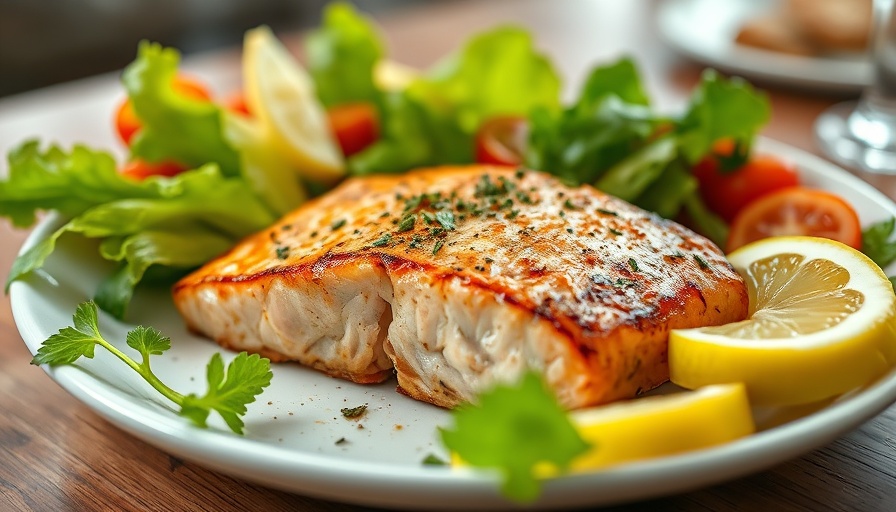
A Changing Climate: The Silent Threat to Our Blood Supply
The urgent findings from a new study published in The Lancet Planetary Health present a stark reality: climate change poses a perilous risk to the availability of safe blood supplies worldwide. Conducted by researchers from the University of the Sunshine Coast and Australian Red Cross Lifeblood, this study highlights how rising temperatures and increasing natural disasters could drastically affect the blood donation process and the overall safety of blood products essential for medical interventions.
Dr. Elvina Viennet, a Lifeblood researcher and an Adjunct Research Fellow, emphasizes that while climate change potentially intensifies health risks, it also complicates the logistics governing blood donation and storage. "Warmer temperatures and natural disasters like heat waves and floods could severely disrupt blood storage and transportation systems due to their short shelf life," she said.
Connecting Climate Change with Blood Donation Trends
Rising global temperatures are not merely an environmental concern; they ripple through the healthcare system, particularly in blood donation. The study notes that as climate conditions worsen, we may see a decline in the number of donors willing or able to participate.
Additionally, predicted increases in infectious diseases, such as Dengue Fever and Malaria, greatly complicate this issue. As the prevalence of these diseases rises in poorer communities, potential blood donors may find themselves unable to donate due to health risks. This dual challenge increases both the demand and the barriers to obtaining necessary blood supplies.
Case Study: Recent Climate Events Impacting Blood Supply
A poignant example of climate change's impact was witnessed during an earlier catastrophic event in Australia, particularly following ex-Tropical Cyclone Alfred. This event severely curtailed national blood supplies for the first time, demonstrating a direct correlation between climate disasters and blood availability.
As Dr. Helen Faddy, the study’s lead researcher, indicates, incorporating these recent observations into planning for blood donation protocols is critical. It highlights the need for medical facilities to adapt their strategies to cope with climate-induced challenges.
The Broader Health Implications of a Fragile Blood Supply
The ramifications of compromised blood supply reverberate throughout the healthcare system, affecting surgical procedures, trauma care, and treatment for chronic illnesses. The consequences are deeply concerning, as blood products play a critical role in saving lives and supporting recovery processes.
As the demand for blood rises due to an aging population and increased chronic illness cases, coupled with climate pressures, the challenges of ensuring a steady blood supply grow exponentially. It is a two-pronged dilemma of heightened need against a backdrop of decreasing availability.
A Call for Community Awareness in Health and Wellness
Health and wellness initiatives must adapt and respond to these emerging realities. Community engagement plays a vital role in boosting blood donations, and local health centers can capitalize on this need by organizing health and wellness events aimed at raising awareness. Programs designed to educate the public about the effects of climate change on health can foster community involvement, ensuring that individuals remain informed and motivated to act.
In San Antonio and similar communities, health and wellness centers can implement strategies to leverage local participation, transforming potential barriers into opportunities for growth. By fostering an environment that prioritizes wellness, communities can collectively work towards an optimal health landscape.
Steps to Mitigating Future Risks to Blood Supplies
Individuals can play a role in safeguarding their communities' blood supplies by adopting a proactive approach towards blood donations. Regularly participating in local blood drives and spreading the word can help maintain adequate blood resources. Additionally, increasing awareness of the relationship between lifestyle choices and overall health, particularly in the context of alternative medicine and lifestyle medicine principles, can empower individuals to embrace practices that support both personal and community well-being.
Furthermore, understanding the impacts of climate change on health at an individual level can encourage lifestyle adjustments that mitigate these risks, from making sustainable choices to supporting local health initiatives.
Final Thoughts: Navigating the Intersection of Climate and Health
As climate change continues to alter our world, understanding its multifaceted impacts on health and blood supply is paramount. By remaining informed, advocating for community health, and actively participating in blood donation efforts, individuals can contribute to ensuring that blood supplies remain resilient against the growing challenges posed by climate change. The collaboration of healthcare providers, community organizations, and engaged citizens is essential to foster a climate of safety and wellness.
 Add Row
Add Row  Add
Add 




 Add Row
Add Row  Add
Add 


Write A Comment